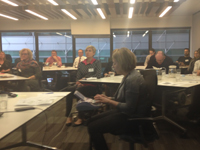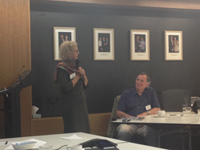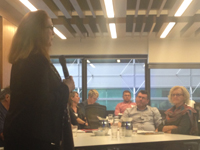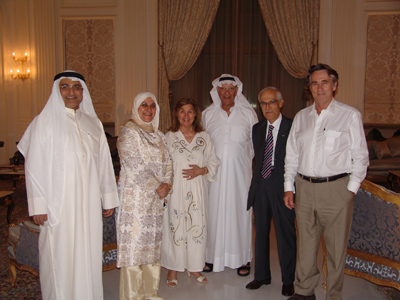Resources > 2023
Australian Government 2023-24 Budget Consultation – R&IA Submission – January 2023 (PDF)
ACT Government 2023-24 Budget Consultation – Submission by ACT Housing Solutions Innovation – March 2023 (PDF) (Word)
Resources > 2022
ACT Government 2022-23 Budget Consultation – R&IA Submission May 2022 (PDF)
Submission to Joint Senate Standing Committee into NDIS Enquiry into Culture and Capability of the NDIA – Dec 2022 – PDF – Word
The 2017 RIA / ANUHD was held at the Australian Human Rights Commission (AHRC) in Sydney on 15 August 2017.
Real time captioning provided a transcript of proceedings.
 |
 |
 |
Summary of event
2017 Housing Forum – Summary (PDF)
Key presentations included
RIA Forum outline and program (PDF)
Andrew Martel – University of Melbourne (PDF)
Lou O’Neill – NDIS (PDF)
Margaret Ward – ANUHD (PDF)
Jane Bringolf – Centre for Universal Design (PDF)
On 30 March 2012 the First Peoples Disability Network Australia (FPDN) was launched in Sydney by The Hon. Senator Jan McLucas, Parliamentary Secretary for Disability & Carers.
FPDN is the new national peak organisation representing Aboriginal and Torres Strait Islanders with disability in Australia, and their families and carers. FPDN membership is made up of existing state networks of Aboriginal and Torres Strait people living in NSW, Queensland, Victoria and South Australia, and will be looking to include other networks in Western Australia, the Northern Territory and Tasmania as full members in the future.
|
First Nations performers |
Damian Griffis CEO |
|
Senator Jan McLucas |
FPDN Executive with Graham Innes |
Rights & Inclusion Australia congratulates FPDN and we look forward to partnership opportunities – to advance the rights and inclusion of First People with a disability.
In April 2012 Michael Fox was invited to Kuwait – and as part of a global RI team a contract was signed with the RI National Member Organisation, the Kuwait Society for the Handicapped (KSH), to prepare a Kuwait Access Strategy.
The program is scheduled for completion by December 2012.

KSH Director Hashem Taqi and his wife, KSH Secretary General Munira Al-Mutawa and husband Faisal, and Khaled El-Mohtar, RI Arab Region Vice-President, with Michael Fox – Visit 2, May 2012. Photo by Joseph Kwan, RI team member and ICTA Global Chair
Making the CRPD work
Awareness raising & effective implementation – international, regional and national implications of the CRPD
THURSDAY 25 NOVEMBER 2010
Sponsored by House With No Steps, Northcott & Access Australia
Keynote Speaker – Professor Ron McCallum AO
UN CRPD Committee Chair
* The UN Convention on the Rights of Persons with Disabilities (CRPD) was ratified by Australia in 2008, and the associated Protocol was ratified in 2009. The 50 Articles of the CRPD provide obligations for Commonwealth, State and Territory governments to implement more equitable and inclusive programs and services.
Program:
2 pm to 4.30 pm – Thursday 25 November 2010
Venue:
House With No Steps
49 Blackbutts Rd, Belrose NSW 2085 Ph 02 9451 1511
Registration: Click here to complete Online Registration Form
Limited spaces – Registration closes 15 November 2010
CRPD Workshop Program
House With No Steps
49 Blackbutts Rd, Belrose NSW 2085 Ph 02 9451 1511
2 pm Welcome to Country & introduction (Uncle Lester Bostock – TBC)
Michael Fox – (RI Australia Chair)
Ron McCallum
Ron McCallum AO
2.15 Keynote – Professor Ron McCallum AO
2.45 Discussion
3.00 Afternoon tea
3.15 Panel discussion
Damian Griffis – Executive Officer, First People’s Disability Network / Australia
Lesley Hall – Executive Director, Australian Federation Disability Organisations
Professor Ron McCallum AO – UN CRPD Committee Chair
Facilitator – Sue Salthouse – President WWDA / RI Australia
3.45 Discussion
4.30 pm Summary, next Workshop & close
Northcott & HWNS can also support participants’ travel costs
Please let us know your support, accessibility and/or dietary requirements.
Thursday 3 March 2011 – 9.30am to 1.00pm
Charles Blunt Conference Room, Royal Rehabilitation Centre, 227 Morrison Road, Putney NSW
Acclaimed scholar, Professor Tom Shakespeare will be presenting a workshop for service providers, hosted by the University of Sydney.
The workshop will address two topics:
These topics will be introduced by Professor Shakespeare followed by an interactive group discussion.
Professor Shakespeare has researched and taught in the field of disability studies, medical sociology and bioethics at the UK Universities of Cambridge, Sunderland, Leeds and Newcastle.
He is currently involved with the World Health Organization in Geneva, as one of the editors of the forthcoming World Report on Disability.
Registration is free but places are limited. To register, contact Dana Higgins, dana.higgins@sydney.edu.au
Initial Workshop HWNS Sydney 25 November 2010
February 2011 – comments & suggestions
The Workshop was attended by approximately 50 delegates representing all stakeholders – including people with a disability, advocates, DPOs, service providers and government. People attending the Workshop were from around Australia, together with delegates from Fiji and Hong Kong.
Rights & Inclusion Australia thanks everyone who attended and contributed to the success of our inaugural CRPD Workshop.
Comments on 25 November CRPD Workshop
Excellent overview of many issues. Good to have broad cross- section of presenters
Lots of important issues put across
Excellent. Challenging to service provider organizations – any engagement of stakeholders with service providers is welcome.
Excellent inaugural meeting – great initiative. Good speakers – broad coverage, well organized. Maybe in small groups and have people introduce themselves, time dependent.
Excellent workshop. Good balance of international and domestic, but disorganized and go for longer please.
Thanks for a very informative afternoon. I appreciated the efforts to be inclusive with the media and sign interpreters.
Suggestions for future CRPD Workshops / events
Ideas so far sound good – consider needs of people who have communication disabilities / using augmentative and alternative communication, as many issues in this area need a lot of support.
May be beneficial to split into domestic CRPD implementation and international in future especially for overseas visitors.
Email forum for discussion.
Familiarisation with content of CRPD.
Key areas – corporate / employment – try and get Debra Perry ILO Geneva.
Children with disabilities – assess situation in Australia.
Relating CRPD to service providers in their day to day context.
There is a great need for more awareness to be created within Australia about the CRPD and that this might be the focus of future workshops.
Disability and the criminal justice system and legal rights building grass roots advocacy to support exercise of rights.
Supporting developing countries in region to implement CRPD.
Accessibility to ICT.
Rights & Inclusion Australia Townsville Workshop – 1 December 2011 – initial outcomes
The Workshop was attended by approximately 45 participants representing key stakeholders and summary reports and audio / video highlights will be posted shortly. Initial outcomes include: